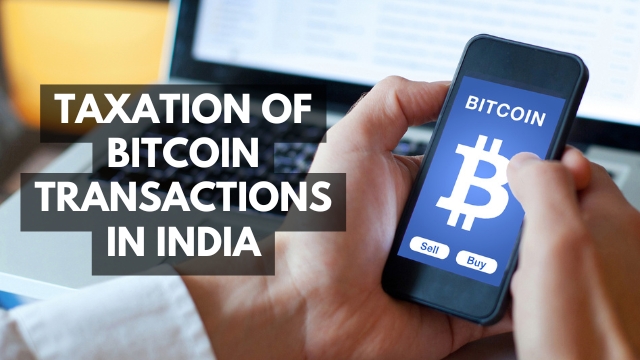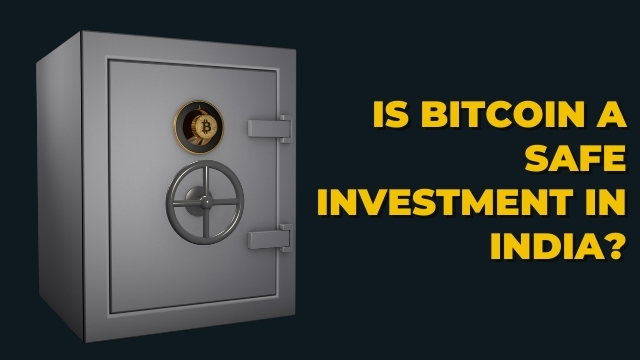Understanding the Legal Status of Bitcoin in India in 2025
As we step into 2025, the cryptocurrency landscape in India continues to evolve. Bitcoin, the world’s largest and most widely recognized cryptocurrency, has faced a fluctuating regulatory environment in the country. With growing global adoption, India’s stance on Bitcoin is more crucial than ever.
So, is buying and selling Bitcoin legal in India in 2025? Let’s explore the current legal framework, government policies, and taxation rules that impact Bitcoin users in India.
Current Legal Framework for Bitcoin in India

The legal status of Bitcoin in India has been a topic of debate for over a decade. The Reserve Bank of India (RBI) initially discouraged cryptocurrencies, leading to a banking ban in 2018. However, in 2020, the Supreme Court of India lifted this ban, allowing exchanges and individuals to trade cryptocurrencies freely.
Regulatory Landscape in 2025
- No Official Ban – As of 2025, Bitcoin remains legal in India, meaning individuals can buy, sell, and hold Bitcoin without violating any laws.
- Government Oversight – While Bitcoin is not banned, it is not recognized as legal tender. This means that while people can trade it, they cannot use it for daily transactions like fiat currency.
- The Cryptocurrency and Regulation of Official Digital Currency Bill – This long-awaited bill, expected to regulate private cryptocurrencies, has seen several delays. In 2025, the government has not enforced an outright ban but has introduced strict regulations.
Bitcoin Trading and Exchanges in India
Cryptocurrency exchanges in India continue to operate under regulatory supervision. Platforms such as WazirX, CoinDCX, and Binance India facilitate Bitcoin trading, ensuring compliance with KYC (Know Your Customer) and AML (Anti-Money Laundering) guidelines.
Key Features of Bitcoin Trading in 2025
- KYC Norms: All crypto traders in India must undergo identity verification.
- RBI Regulations: Exchanges must adhere to RBI guidelines to ensure transparency and prevent financial crimes.
- Self-Regulation by Exchanges: Indian crypto exchanges have introduced self-regulatory measures to build credibility and protect investors.
Disclaimer:
This blog post is for informational purposes only and does not constitute financial, legal, or investment advice. We do not guarantee accuracy, reliability, or security. Any actions taken based on this content are at your own risk. Always conduct your own research and consult a professional before making decisions.
Taxation of Bitcoin Transactions in India

The Indian government has implemented a clear taxation policy for cryptocurrencies. In 2022, the government imposed a 30% tax on crypto gains and a 1% TDS (Tax Deducted at Source) on transactions above a specific limit.
Tax Implications in 2025
- Flat 30% Tax on Gains: Any profits from Bitcoin trading are taxed at 30%, similar to income from gambling or lottery winnings.
- 1% TDS on Transactions: Every crypto transaction above ₹10,000 attracts a 1% TDS, which is deducted at the time of trade.
- No Set-Off for Losses: Losses from Bitcoin trading cannot be offset against other income sources, making it a high-risk investment.
While taxation policies have made Bitcoin trading less attractive to some, many investors continue to participate in the market due to its high return potential.
Government’s Stance on Bitcoin in 2025
Despite global trends toward Bitcoin adoption, the Indian government maintains a cautious approach. The RBI continues to express concerns over financial stability and fraud risks associated with cryptocurrencies.
Key Developments:
1. Central Bank Digital Currency (CBDC)
The Indian government has launched the Digital Rupee under RBI’s supervision. This government-backed digital currency is promoted as a safer alternative to Bitcoin.
2. Crypto Regulation Framework
While Bitcoin is not banned, the government is working on a regulatory framework to monitor crypto transactions and prevent illicit activities.
3. Strict Compliance Measures
Exchanges must comply with data-sharing agreements with tax authorities, ensuring transparency.
Is Bitcoin a Safe Investment in India?

While Bitcoin is legal in India, its volatile nature and taxation structure make it a complex investment. Investors must consider the risks and regulatory uncertainty before diving into Bitcoin trading.
Factors to Consider:
- Market Volatility: Bitcoin prices fluctuate rapidly, leading to potential gains or losses.
- Government Regulations: Future policies may impact how Bitcoin is traded or taxed.
- Security Risks: Investors must use secure exchanges and wallets to prevent hacks.
Final Thoughts
Bitcoin remains legal but regulated in India in 2025. While the government has imposed taxation and compliance measures, it has not banned cryptocurrency trading. With the Digital Rupee gaining traction, Bitcoin investors must stay updated on regulatory changes to make informed decisions.
For those considering Bitcoin investment in India, understanding risks, taxation, and compliance requirements is crucial to navigating the evolving crypto landscape.
Frequently Asked Questions About Is Buying and Selling Bitcoin Legal in India in 2025?
Q1. Is Bitcoin legal in India in 2025?
Answer: Yes, Bitcoin is legal in India. However, it is regulated and taxed by the government.
Q2. Can I use Bitcoin for daily transactions in India?
Answer: No, Bitcoin is not recognized as legal tender, meaning it cannot be used for everyday purchases.
Q3. How much tax do I need to pay on Bitcoin trading?
Answer: A flat 30% tax is applicable on crypto gains, along with a 1% TDS on transactions above ₹10,000.
Q4. Are there any restrictions on buying and selling Bitcoin in India?
Answer: There are no direct restrictions, but exchanges must comply with KYC and AML regulations.
Q5. Will India ban Bitcoin in the future?
Answer: There are no signs of a complete ban, but the government is working on strict regulations.
Disclaimer:
This blog post is for informational purposes only and does not constitute financial, legal, or investment advice. We do not guarantee accuracy, reliability, or security. Any actions taken based on this content are at your own risk. Always conduct your own research and consult a professional before making decisions.

